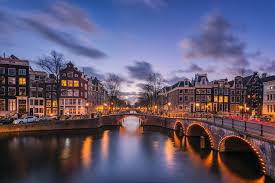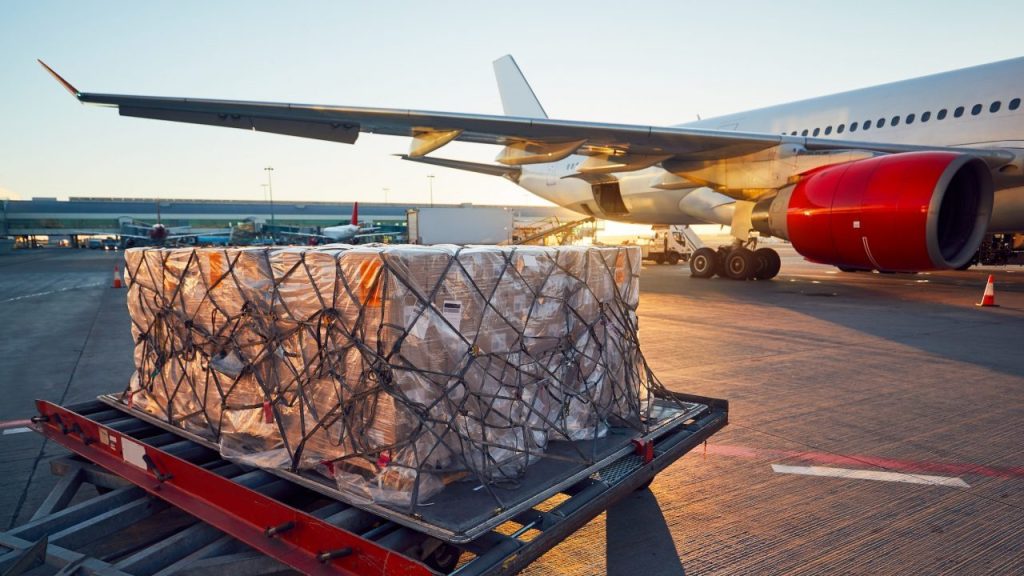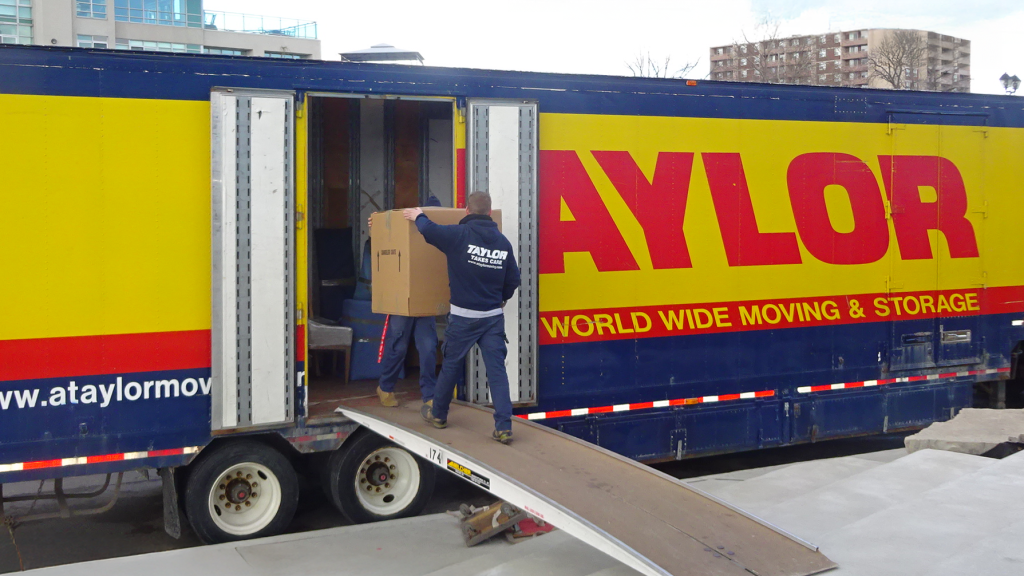
International Moving between Canada and the Netherlands
Moving overseas to or from Canada and the Netherlands? Learn more about packing, shipping, and customs to make your international relocation stress-free.
Planning Your Move
The first step in your international move is a tailored assessment of your needs. You can complete our AI-powered survey or meet with our consultants via Zoom, Google Meet, or in person. During this consultation, we’ll determine your packing requirements, customs considerations, and other key details.

Why Choose Taylor International?
We offer flexible, high-quality moving solutions through our extensive supply chain. As members of the International Association of Movers (IAM) and Fédération Internationale des Déménageurs Internationaux (FIDI), we provide access to a vast global network, ensuring reliable service with backup options for a seamless transition.
- Premium Service: Our FIDI-certified partners offer top-tier care.
- Budget-Friendly Options: IAM-certified movers provide reliable, cost-effective solutions.
- Balanced Approach: We customize packages to match your priorities.
- Diversified Supply Chain: No matter the option selected in the event of a major issue, we have back-up plans to ensure your move is performed with your customized plan.
- Extensive 3rd Party Partnerships: Our network also encompasses a vast array of 3rd party services from appliance disassembly, gym disassembly and other critical expert assistance to ensure your items are protected.
- Robust Cybersecurity: Our methods, procedures and systems enable your most sensitive information to be secure.
- Customs Mastery: Our international move managers work with you to ensure that you can navigate the complexities of customs, imports, exports and local regulations with the upmost care.
- Comprehensive Insurance: Taylor International provides full replacement value so you do not need to worry about the what ifs and instead focus on the will bes when you get to your destination. We will also source any services needed to render this service globally.
Our strict vetting process ensures only top-performing providers handle your shipment. If a supplier doesn’t meet our standards, they’re removed from our network—your satisfaction is our priority.
Choosing the Right Shipping Method
We help you select the most efficient transport option:

Sea Freight
The most economical choice for most moves.

Air Freight (LTL)
Faster delivery at a premium.

Hybrid Solutions
Essential items arrive by air, with the rest shipped via sea.
No matter your budget, we’ll find the best option for you.
Your Moving Journey
After your consultation, our specialists create a personalized moving plan and provide a detailed quote. Once confirmed, a dedicated moving coordinator will manage the process, ensuring smooth navigation of documentation, customs, and compliance requirements—avoiding delays or unexpected fees.
Relocating from Canada to Groningen, the Netherlands’ northern gem, offers a lively, student-friendly, and community-driven atmosphere. Known for its historic charm, innovative economy, and high quality of life, Groningen is an excellent choice for expatriates looking for a more relaxed and affordable alternative to larger Dutch cities like Amsterdam and Rotterdam.
Visa and Residency Requirements
Canadians can stay in the Netherlands visa-free for up to 90 days within a 180-day period, but for long-term stays, a residence permit (verblijfsvergunning) is required. Common visa options include:
- Highly Skilled Migrant Visa (for professionals with a Dutch employer).
- Startup Visa (for entrepreneurs launching a business).
- DAFT Visa (for self-employed Canadians under the Dutch-American Friendship Treaty).
- Study Visa (for students attending institutions like the University of Groningen).
Upon arrival, expatriates must register with the municipality (gemeente Groningen) to obtain a BSN (Burger Service Nummer), which is necessary for employment, banking, and healthcare.
Finding Housing in Groningen
Groningen offers a more affordable housing market than cities like Amsterdam or Utrecht. Popular neighborhoods include:
- Binnenstad (City Center): Historic, vibrant, and close to restaurants and nightlife.
- Oosterpoort: Trendy, artistic, and well-connected to public transport.
- Schildersbuurt & Korrewegwijk: Family-friendly residential areas with green spaces.
- Zernike Campus Area: Ideal for students and professionals working in tech or research.
Most landlords require proof of income, a Dutch employment contract, and a security deposit. Websites like Funda, Pararius, and Kamernet are helpful for finding rental properties.
Banking and Financial Setup
Opening a Dutch bank account is essential for rent payments and daily transactions, as many local businesses do not accept foreign debit or credit cards. Popular banks include ABN AMRO, ING, and Rabobank, while digital banking options like Bunq and N26 offer convenient online services. A BSN number, passport, and proof of residence are required to open an account.
Healthcare and Insurance
Health insurance is mandatory in the Netherlands. New residents must enroll in Dutch health insurance (zorgverzekering) within four months of registration. The basic health insurance plan (basisverzekering) covers essential medical care, and additional packages can include dental and specialist services. Private international health insurance is recommended before enrolling in the Dutch system.
Transportation and Connectivity
Groningen is one of the most bike-friendly cities in the Netherlands, with well-developed cycling lanes and a compact city layout. Public transportation is available via Qbuzz buses connecting different districts. Groningen’s train station provides direct rail access to Amsterdam, Utrecht, and Germany. International travel is easy via Schiphol Airport (2 hours by train) or Groningen Airport Eelde for regional flights.
Adapting to Life in Groningen
Groningen is a young and international city, home to a large student and expat population. While English is widely spoken, learning Dutch can enhance social and professional integration. Expats can connect through groups like Internations Groningen, Meetup events, and the Expat Centre Groningen. The city offers a rich cultural scene, excellent dining, and a strong work-life balance, making it an ideal place for Canadians seeking a dynamic yet relaxed lifestyle in the Netherlands.With its affordable cost of living, strong job market, and welcoming community, Groningen is a fantastic choice for expatriates looking for a vibrant and well-connected home in the Netherlands.
Relocating from Canada to Utrecht, one of the Netherlands’ most picturesque and livable cities, offers a perfect blend of history, modernity, and connectivity. As the fourth-largest city in the Netherlands, Utrecht is known for its charming canals, vibrant student atmosphere, and strong job market, making it a popular destination for expats. Its central location provides easy access to Amsterdam, Rotterdam, and The Hague, making it ideal for professionals, students, and families alike.
Visa and Residency Requirements
Canadians can stay in the Netherlands visa-free for up to 90 days within a 180-day period, but for long-term relocation, a residence permit (verblijfsvergunning) is required. The most common permits include:
- Highly Skilled Migrant Visa (for professionals with a Dutch employer sponsor).
- Startup Visa (for entrepreneurs looking to launch a business).
- DAFT Visa (for self-employed Canadians under the Dutch-American Friendship Treaty).
- Study Visa (for students enrolling in Dutch universities, such as Utrecht University).
Upon arrival, expatriates must register with the local municipality (gemeente Utrecht) to obtain a BSN (Burger Service Nummer), which is necessary for employment, banking, and healthcare.
Finding Housing in Utrecht
The Utrecht housing market is competitive, but it remains more affordable than Amsterdam. Some of the best neighborhoods for expats include:
- Binnenstad (City Centre): Historic, vibrant, and filled with cafes and shops.
- Lombok & Nieuw Engeland: Multicultural, close to the city center, with a community feel.
- Oost & Wilhelminapark: Green, upscale, and popular among families and professionals.
- Leidsche Rijn: A modern suburb with larger homes and good transport links.
Dutch landlords often require proof of income, an employment contract, and a security deposit. Platforms like Pararius, Funda, and Kamernet can help find suitable rentals.
Banking and Financial Setup
Opening a Dutch bank account is essential for daily transactions, as many businesses do not accept foreign credit or debit cards. Major banks include ABN AMRO, ING, and Rabobank, while online banks like N26 and Bunq offer digital banking solutions. To open an account, you’ll need a BSN number, passport, and proof of Dutch residency.
Healthcare and Insurance
Healthcare in the Netherlands is mandatory, and residents must enroll in Dutch health insurance (zorgverzekering) within four months of registering. The basic health insurance plan (basisverzekering) covers general medical care, while additional coverage is available for dental and specialist treatments. Until enrolled, private international insurance may be necessary.
Transportation and Connectivity
Utrecht is a cycling city, and most residents rely on bikes as their primary mode of transportation. The city also has a well-developed public transport system (U-OV), with buses and trams connecting different neighborhoods. Utrecht Centraal Station is the largest train station in the Netherlands, providing high-speed connections to Amsterdam (25 minutes), Rotterdam (40 minutes), and The Hague (35 minutes).
Adapting to Life in Utrecht
Utrecht is a young, international city, thanks to its large student and expat population. While English is widely spoken, learning Dutch can help with social integration. Networking groups like Internations Utrecht, Utrecht Expats Meetup, and the Expat Centre Utrecht provide great opportunities for newcomers. The city’s charming canals, lively cultural scene, and proximity to nature make it an ideal destination for Canadians seeking a balanced and dynamic lifestyle in the Netherlands.With its historic beauty, strong economy, and excellent quality of life, Utrecht is a fantastic choice for expatriates looking for a friendly and well-connected city to call home.
Relocating from Canada to The Hague (Den Haag) offers a unique opportunity to experience a cosmopolitan yet peaceful lifestyle in the political and diplomatic capital of the Netherlands. Known for hosting the International Court of Justice and numerous embassies, The Hague is a multicultural city that blends historic charm with modern conveniences. With its high quality of life, beautiful coastline, and strong job market, The Hague is an excellent choice for Canadian expatriates.
Visa and Residency Requirements
Canadians can visit the Netherlands visa-free for up to 90 days within a 180-day period, but for long-term relocation, a residence permit (verblijfsvergunning) is required. The most common permits include:
- Highly Skilled Migrant Visa (for professionals with a Dutch employer sponsor).
- Startup Visa (for entrepreneurs launching a business).
- DAFT Visa (for self-employed Canadians under the Dutch-American Friendship Treaty).
- Study Visa (for students enrolling in Dutch universities).
Upon arrival, expatriates must register with the municipality (gemeente Den Haag) to obtain a BSN (Burger Service Nummer), a personal identification number required for work, healthcare, and banking.
Finding Housing in The Hague
The Hague’s housing market is competitive, but it offers more space and affordability compared to Amsterdam. Popular neighborhoods include:
- Zeeheldenkwartier – Trendy, central, with many cafes and boutiques.
- Benoordenhout & Statenkwartier – Expensive, upscale neighborhoods popular with diplomats and expats.
- Bezuidenhout – Family-friendly, close to public transport and parks.
- Scheveningen & Kijkduin – Coastal areas near the beach, great for those who love the outdoors.
Landlords typically require a Dutch employment contract, proof of income, and a security deposit. Websites like Pararius, Funda, and Expat Housing help with rentals.
Banking and Financial Setup
A Dutch bank account is essential for managing daily expenses, as many local businesses do not accept foreign debit or credit cards. Popular banks include ABN AMRO, ING, and Rabobank, while online banks like Bunq and N26 offer easy international banking options. You’ll need a BSN number, passport, and Dutch address to open an account.
Healthcare and Insurance
Healthcare in the Netherlands is mandatory, and new residents must enroll in Dutch health insurance (zorgverzekering) within four months of registering in the country. The basic health insurance (basisverzekering) covers essential medical care, and additional packages are available for dental and specialist treatments. Until covered by Dutch insurance, expatriates may need private international coverage.
Transportation and Connectivity
The Hague has an efficient public transport system (HTM) with trams, buses, and trains. The OV-chipkaart allows seamless travel throughout the Netherlands. The city is also bike-friendly, with cycling paths connecting most neighborhoods. Intercity trains provide quick access to Amsterdam (40 minutes), Rotterdam (20 minutes), and Brussels (2 hours).
Adapting to Life in The Hague
The Hague is multilingual and home to a large international community, making integration easier. While English is widely spoken, learning Dutch helps with social and professional interactions. Networking groups like Internations, Expat Republic, and The Hague International Centre help expatriates settle in. The city’s diplomatic environment, green parks, cultural sites, and proximity to the North Sea make it a perfect balance between professional life and leisure.With its political significance, international diversity, and relaxed coastal atmosphere, The Hague is a fantastic place for Canadians seeking a high quality of life and professional opportunities in the Netherlands. Proper preparation ensures a smooth transition into this beautiful and welcoming city.
Relocating from Canada to Rotterdam offers a modern, dynamic, and international lifestyle in one of Europe’s most innovative cities. As the Netherlands’ second-largest city and one of the world’s busiest ports, Rotterdam is known for its contemporary architecture, thriving job market, and diverse culture. With a lower cost of living than Amsterdam and a more relaxed pace, it is an attractive option for Canadian expatriates.
Visa and Residency Requirements
Canadians can visit the Netherlands visa-free for up to 90 days within a 180-day period, but for long-term relocation, a residence permit (verblijfsvergunning) is necessary. The most common permits include:
- Highly Skilled Migrant Visa (for professionals with a job offer in the Netherlands).
- Startup Visa (for entrepreneurs launching a business).
- DAFT Visa (for self-employed Canadians under the Dutch-American Friendship Treaty).
- Study Visa (for students enrolled in Dutch universities).
Upon arrival, expatriates must register with the local municipality (gemeente) to obtain a BSN (Burger Service Nummer), which is required for employment, healthcare, and banking.
Finding Housing in Rotterdam
Rotterdam’s housing market is more affordable than Amsterdam, though competition is increasing. Popular neighborhoods include:
- Kop van Zuid & Wilhelminapier – Trendy waterfront areas with modern apartments.
- Blijdorp – A quiet, green district, popular with families.
- Kralingen – A lively student-friendly area near Erasmus University.
- Delfshaven – A historic yet affordable neighborhood with diverse culture.
Landlords typically require proof of income, a Dutch employment contract, and a security deposit. Housing agencies like Pararius and Funda can help navigate the rental market.
Banking and Financial Setup
Opening a Dutch bank account is necessary for daily transactions, as many local businesses do not accept foreign debit or credit cards. Major banks include ABN AMRO, ING, and Rabobank, while N26 and Bunq offer online banking solutions for international residents. To open an account, you’ll need a BSN number, passport, and Dutch address.
Healthcare and Insurance
Health insurance is mandatory for all residents. Expats must enroll in Dutch health insurance (zorgverzekering) within four months of registering in the country. The basic health insurance (basisverzekering) covers general medical care, and additional packages can be purchased for dental or specialist treatments. Until insured, private international health insurance can cover medical needs.
Transportation and Daily Life
Rotterdam has an excellent public transit system (RET) with metro, buses, and trams. The OV-chipkaart is required for seamless travel. The city is also bike-friendly, and cycling is the preferred mode of transport. NS trains connect Rotterdam to Amsterdam, The Hague, Utrecht, and even Belgium and France via high-speed rail.
Adapting to Life in Rotterdam
Rotterdam is international and English-friendly, but learning Dutch can be beneficial for work and social interactions. The city has a growing expat community, with social groups like Internations and Meetup offering networking opportunities. Rotterdam’s work culture values efficiency and innovation, making it an ideal place for professionals and entrepreneurs.With its modern infrastructure, cultural diversity, and strategic location in Europe, Rotterdam is a fantastic destination for Canadians seeking a vibrant, affordable, and forward-thinking city to call home. With the right preparation, settling in can be smooth and rewarding.
Relocating from Canada to Amsterdam offers an exciting opportunity to experience Dutch culture, international diversity, and a high quality of life. As one of Europe’s most livable cities, Amsterdam is known for its bike-friendly infrastructure, efficient public transport, and vibrant work-life balance. However, the transition requires careful planning, from securing the right visa to navigating the housing market.
Visa and Residency Requirements
Canadians can visit the Netherlands visa-free for up to 90 days within a 180-day period, but for long-term stays, a residence permit (verblijfsvergunning) is required. The most common permits include:
- Highly Skilled Migrant Visa (for professionals with an employer sponsor).
- Startup Visa (for entrepreneurs launching a business).
- DAFT Visa (for self-employed Canadians under the Dutch-American Friendship Treaty).
- Study Visa (for university students).
Upon arrival, expatriates must register with the municipality (gemeente) to obtain a BSN (Burger Service Nummer), which is required for banking, healthcare, and employment.
Finding Housing in Amsterdam
Amsterdam’s housing market is competitive, with high demand and limited availability. Rent prices vary based on location:
- Jordaan & De Pijp – Trendy, central neighborhoods with a lively atmosphere.
- Oud-West & Oud-Zuid – Upscale areas with beautiful parks and family-friendly vibes.
- Amsterdam-Noord – A growing, artistic district with more affordable options.
- Amstelveen – A suburban alternative, popular with expat families.
Most landlords require a Dutch employment contract, proof of income (three times the rent), and a deposit. Short-term rentals are often available but can be expensive. Housing agencies like Pararius and Funda help navigate the market.
Banking and Financial Setup
Opening a Dutch bank account is essential for handling payments, as many stores and services do not accept foreign debit or credit cards. Popular banks include ABN AMRO, ING, and Rabobank, while online banks like N26 and Bunq offer easy international transactions. You’ll need a BSN number, passport, and Dutch address to open an account.
Healthcare and Insurance
The Netherlands has a mandatory health insurance system, and new residents must enroll in Dutch health insurance (zorgverzekering) within four months of arrival. Until then, private insurance can cover you. The basic health insurance plan (basisverzekering) covers essential medical care, and additional packages are available for dental and specialist treatments.
Transportation and Daily Life
Amsterdam’s public transit system (GVB) includes trams, buses, and metro services. The OV-chipkaart is used for seamless travel across the Netherlands. Cycling is the preferred mode of transport, and buying a second-hand bike is a smart investment. The train system (NS) connects Amsterdam to Rotterdam, Utrecht, and even Belgium and Germany for easy travel.
Adapting to Life in Amsterdam
Amsterdam is a multicultural and English-friendly city, but learning Dutch can help with integration and career opportunities. The city has a large expat community, with social networks like Internations, Meetup, and Expatica offering great ways to connect. The Dutch work culture values work-life balance, and many companies offer flexible schedules.With its thriving job market, excellent public services, and welcoming international community, Amsterdam is a fantastic destination for Canadians looking to relocate. With proper planning, the transition can be smooth and rewarding.